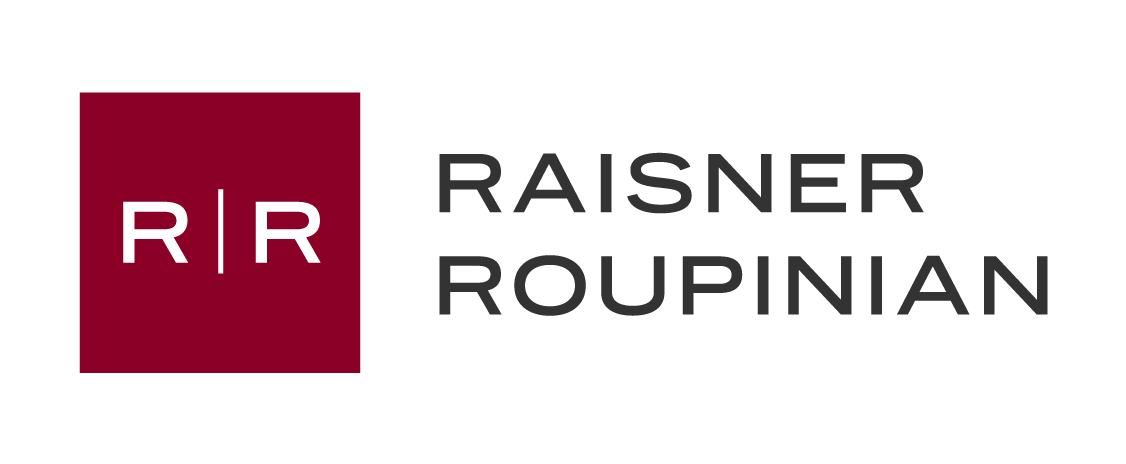GDC Technics class action certified for WARN Act and accrued Paid Time Off (PTO) claims
GDC Technics class action certified for WARN Act and accrued Paid Time Off (PTO) claims
After a series of hard-fought motions to dismiss and to stop class certification, the Bankruptcy Court for the Western District of Texas granted the employees of GDC Technics class certification for their claims seeking WARN Act back pay and accrued PTO wages.
GDC Technics, most notably, was the aircraft customizer that outfitted Air Force One, which transports the President of the United States of America. In April 2021, disputes between GDC and Boeing led to the cancellation of GDC’s contract for work on Air Force One. GDC closed its facility in San Antonio, Texas, ceased most operations at its Fort Worth headquarters and filed for bankruptcy. More than 200 employees were terminated with little or no warning.
Representing a GDC engineer who was terminated as part of the mass layoff, Raisner Roupinian filed suit against GDC alleging violation of the WARN Act. The lawsuit also alleges that GDC’s employee handbook provided that employees would be paid their accrued paid time off (“PTO”) upon separation, which constituted a contractual promise. GDC moved to dismiss the PTO claim, arguing that, under Texas law, employee handbooks are not enforceable contracts. Although Texas employees seeking to enforce the terms of an employee handbook are often unsuccessful, Raisner Roupinian argued that because GDC required employees to sign an agreement to abide by the terms in the handbook, it was a valid contract. The Court agreed and denied GDC’s motion to dismiss. In a second round of briefing and argument, GDC attempted to stop the case from proceeding as a class action, arguing that the circumstances of each employees’ contract were too unique to be tried together. Raisner Roupinian prevailed in arguing that the employees were similarly situated and obtained class certification. The case is going forward on behalf of all the terminated GDC employees. The class certification decision received coverage in the San Antonio Express-News.
Read MoreMunchery Inc. class settlement approved
Munchery Inc. class settlement approved by United States District Court for the Northern District of California
The court approved the settlement based on: (1) the strength of the plaintiff’s case; (2) the risk, expense, complexity, and likely duration of further litigation; (3) the risk of maintaining class action status throughout the trial; (4) the amount offered in settlement; (5) the extent of discovery completed and the stage of the proceedings; (6) the experience and views of counsel; and (7) the reaction of the class members to the proposed settlement.
Raisner Roupinian LLP received final approval for a settlement class of 250 online food delivery service employees of Munchery in the San Francisco Bay Area. The company went out of business without written notice to its employees in January 2019 and filed for bankruptcy protection. The parties settled in 2020 and, 24 months after the shutdown, the Court granted full approval of the settlement.
The Court found that Raisner Roupinian’s request for attorneys’ fees and costs, and for an incentive award for the class representatives/named plaintiffs were all reasonable. The decision is: Philips v. Munchery Inc., 19-CV-00469-JSC, 2021 WL 326924, at *3–5 (N.D. Cal. Feb. 1, 2021)
Read MoreJack Raisner quoted in Law360 on whether Enterprise Rent-A Car’s pandemic-related layoffs violated the WARN Act.
January 2021 Jack Raisner quoted in Law360 on whether Enterprise car rental’s pandemic-related layoffs violated the WARN Act.
The article “Enterprise WARN Act Ruling Spells Trouble For Big Employers” provided “a preview of how these suits may be handled by federal judges.” The judge refused to dismiss the case on the grounds that the COVID-19 pandemic was a “natural disaster” under the WARN Act which exempts the company from notice requirements. He found that the economic effects of COVID-19 which cause a business to close are different from a direct hit from a tornado, earthquake or tsunami that renders a company unable to function (and therefore unable to provide WARN notice). The judge instead found that the WARN defense of “unforeseeable business circumstances” might be more appropriate in an event like the COVID-19 pandemic, but that such an issue was not suitable for consideration on a motion to dismiss. Among the experts explaining the Enterprise decision, the article quoted Jack Raisner:
“It’s way too factually intricate and involved,” said Raisner Roupinian LLP co-founder Jack Raisner, who represents workers in mass layoff cases. “The big question is whether courts looking at the evidence will find that these decisions to terminate people could’ve been made earlier or not.” “These are issues for summary judgment or trial,” Raisner said.
Enterprise subsequently settled the case with its former employees.
Read MoreBloomberg Law Interviews Jack Raisner on Coronavirus Layoffs and WARN
Jack Raisner recently discussed with Bloomberg Law the implication of Covid-19 on layoffs and the legal rights of workers
Read MoreTIME Magazine reports Jack Raisner’s work on the Senate Fair Warning Act of 2019 and the New Jersey Severance Law in major article on employees’ rights in mass layoffs
Jack Raisner recently helped New Jersey pass a bill that updates the WARN Act to apply to more retail workers
Read MoreRaisner Roupinian win the right to amend the Transcare complaint to add Lynn Tilton’s ARK II fund as another defendant in the ongoing WARN and wage collection case.
Read the case text for Ien v. TransCare Corp.
Read MoreRaisner Roupinian win trial in Fisker WARN case. WARN wages are entitled to priority treatment in bankruptcy.
Read the case text for Etzelsberger v. Fisker Auto. Holdings, Inc
Read More